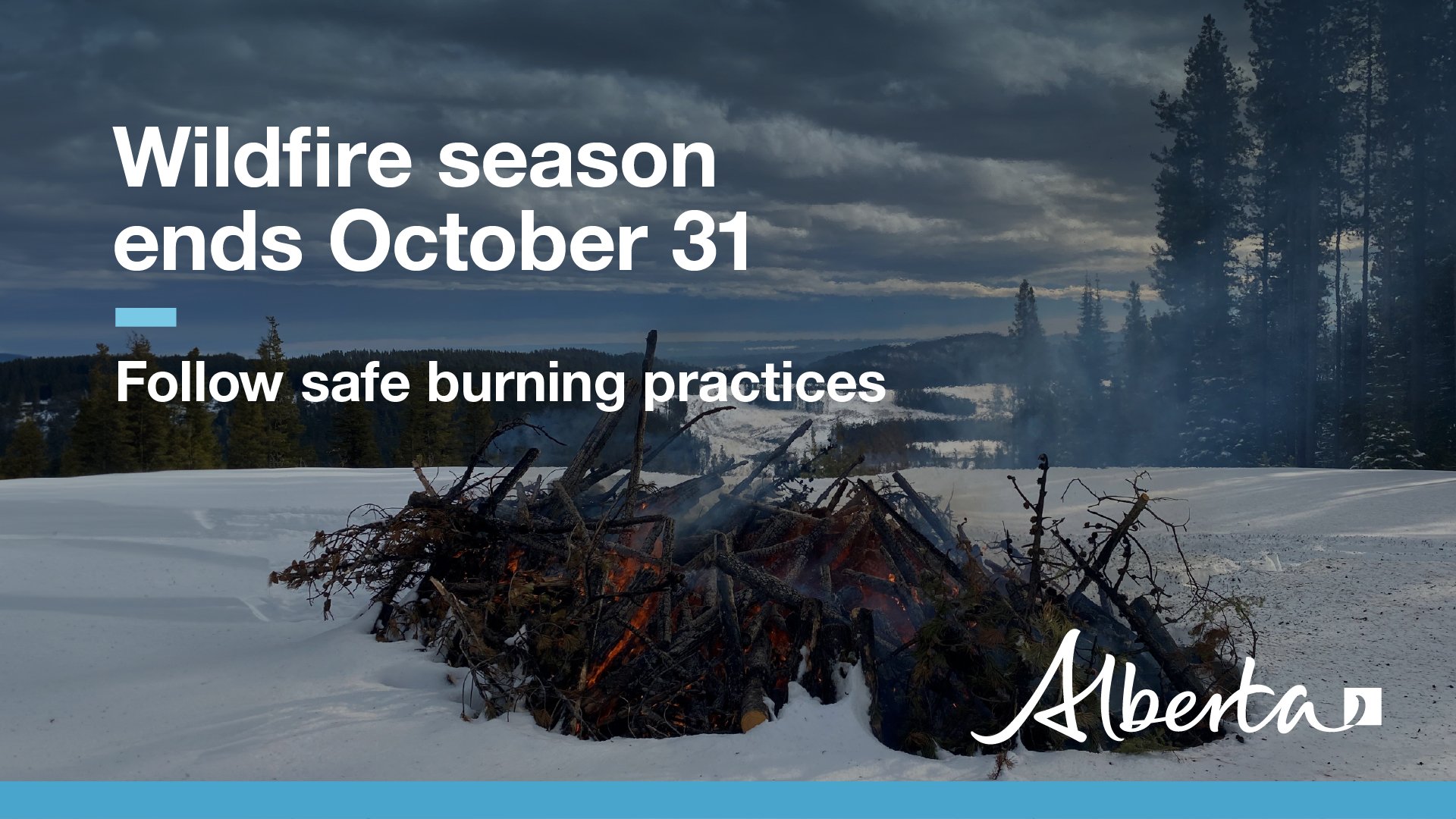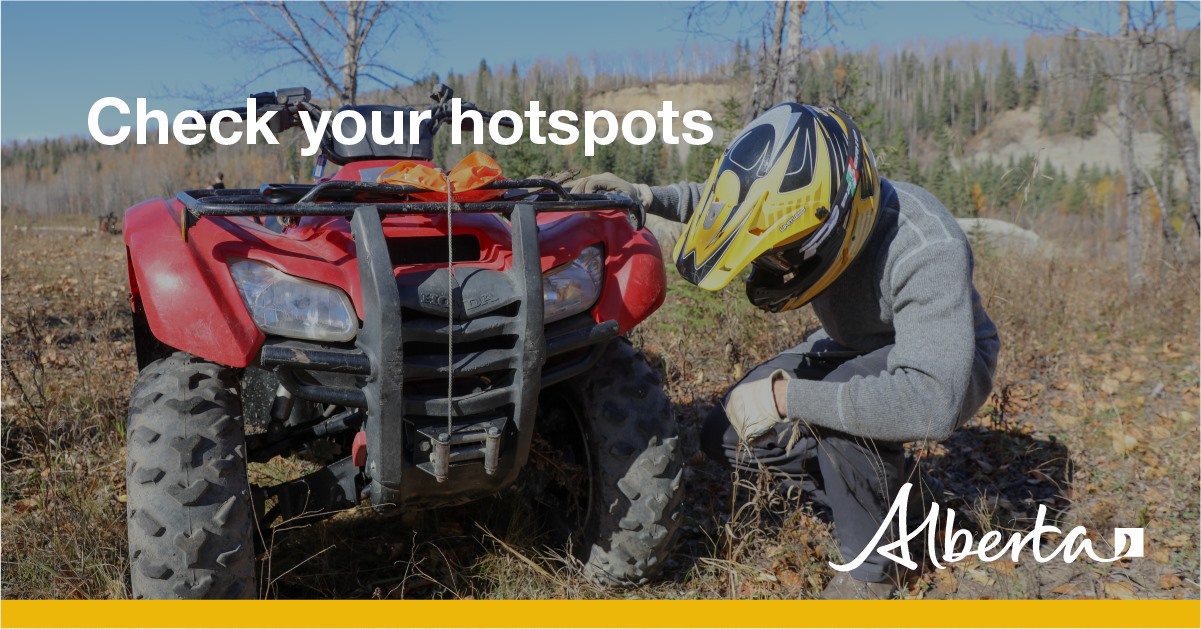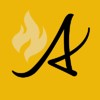
The wildfire danger in the Rocky Mountain House Forest Area is MODERATE.
Wildfires can still start in cooler weather, especially in dry and windy conditions. Always use caution in forested areas.
Report wildfires by calling 310-FIRE (3473).

END OF WILDFIRE SEASON
Wildfire season is officially over as of November 1st. Fire permits are no longer required but you are still responsible for any burning project that you take on.
Holdover fires are likely to occur this year due to dry conditions. A fire lit in the winter and left smouldering can burn under the snow and into the ground all winter long. Under the right conditions, these fires can re-emerge in the spring as wildfires. To prevent spring wildfires, check your winter burn sites frequently and ensure that all fires are completely extinguished.
Wait until there are at least 15 cm of snow on the ground before burning and follow our safe burning guidelines.
WILDFIRE UPDATE
Since January 1, 2023, there have been 79 wildfires in the Rocky Mountain House Forest Area, burning a total of 120,936 hectares (ha).
There are currently two wildfires burning in the Rocky Mountain House Forest Area. They are both under control.
Since January 1, there have been 1,104 wildfires in the Forest Protection Area of Alberta, burning a total of 2,211,955 hectares.
For more information on the current wildfire situation, visit Alberta Wildfire Status.
.jpg?width=1920&height=1080&name=Hiring%20firefighters%20-%20helicopter%20(landscape).jpg)
.png?width=659&height=345&name=WF_Social-images%20(4).png)
CAMPFIRE SAFETY
Hunters, please ensure warming and cooking fires are completely extinguished when you are done with them. Build campfires on bare mineral soil, away from flammable vegetation like dry grass, twigs and leaves. Soak it, stir it and soak it again when you are done with your fire to ensure it is properly extinguished.

OHV SAFETY
If you are using an off-highway vehicle, remember to stop often and check hot spots. Debris, like grass and twigs, can build up around the engine, exhaust and muffler. This debris can heat up, smoulder and inadvertently ignite a wildfire when it falls to the ground.
CONTACT
Provincial Information Officer